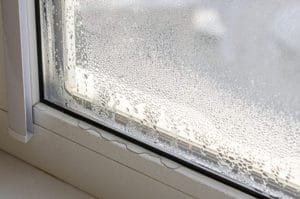Should You Be Using a Dehumidifier in Southern California?
The Answer Could Give You Better Indoor Air Quality and Lower Energy Bills

The fact is that even in Southern California, it does get muggy from time to time, especially in the hotter months. And even if it’s not particularly humid in your area, poor ventilation and basic building design can make your indoor environment far damper than it should be for optimal comfort and health. Along with a well-maintained heating and air conditioning system, a dehumidifier can actually improve your indoor air quality. It can also reduce or eliminate the risk of mold and mildew altogether from growing in your home’s insulation, floor coverings or drywall.
Dampness Affects Breathing and Building Quality
We’ve all seen the horror stories on television news channels from folks who removed their home’s drywall to reveal black mold. What’s scary is that many times there are few signs the mold is even there before it’s later uncovered. With only a lingering musty smell, often those living or working in a mold-infested building may not realize spores in the air are negatively affecting their health. Headaches, dizziness, undue fatigue or even strong nausea have all been linked to mold exposure.
Removal not only requires expensive abatement procedures but is often a long road back to health for those who have suffered its proven medical consequences.
Humidity Affects Energy Usage
Few people are also aware that humidity makes it more difficult for your heating and air conditioning system to work effectively. As any Chicago or Cincinnati resident will tell you, humidity makes air feel uncomfortable when it’s hot and unbearable when it’s cold. Your HVAC system must dry the air before it changes the indoor temperature. Humid conditions require your equipment to use more energy, costing you more money to do the same job.
Safety Is the Solution
A good HVAC dehumidifier can be your answer to this potential risk and unnecessary energy waster. There are multiple types available.
A compressor dehumidifier works by drawing air through a filter system and collecting excess water in a tank. A desiccant dehumidifier uses unique materials to remove moisture from the air. Having done so, it then pulls the moisture into a special tank as well. Your HVAC expert can tell you more about what kind of humidifier will work best in your home.
Changing outdoor conditions and eliminating smoke, pollution and other air quality problems from our world is a staggeringly difficult task. Luckily, changing your indoor air quality is something you can improve tomorrow, with good air filtration, an HVAC system kept up to date, and a dehumidifier. Talk to your heating and air conditioning specialist about your options, today.
Air-Tro is the name people in the Southland trust when it comes to heating and air conditioning. We’ve been keeping California comfortable since 1969. Call us today at (626) 357-3535.
